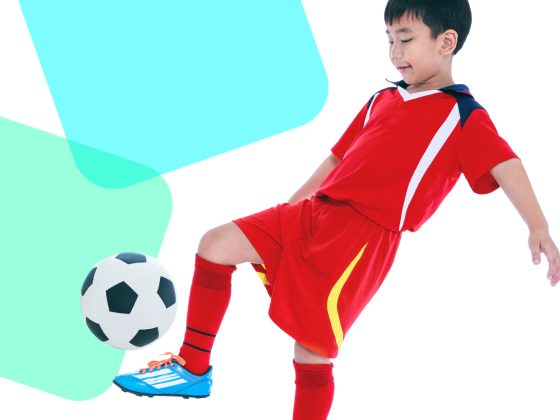
Why Is Physical Play Important?
Play helps children develop gross motor skills and more. Learn about ways you can support physical play.
Little ones are constantly developing their bodies in new ways, learning to jump, climb, skip, and hop—skills that build on one another. Developing gross-motor, or large-muscle, skills helps increase kids’ strength, coordination, and confidence. Here are some ways you can help:
- Introduce a tricycle or pedaling toy.
- Encourage kids to climb and swing at the playground.
- Play catch or kick a ball.
- Get kids involved in individual or group activities such as soccer, jump rope, or swimming.
- Put on some music and dance!
Small-muscle, or fine-motor, skills are another big part of development. Hand-eye coordination lets kids draw, scribble, and write—all important skills for school. Consider these ways to build fine motor skills:
- Do art projects that include drawing, cutting with safety scissors, and pasting.
- Do puzzles that have pieces of different sizes.
- Provide toys that allow for sorting or stacking.
- Play with trains or cars that need to be pushed along a track.
- Create objects by molding clay.
- Give kids practice with buttons and snaps.
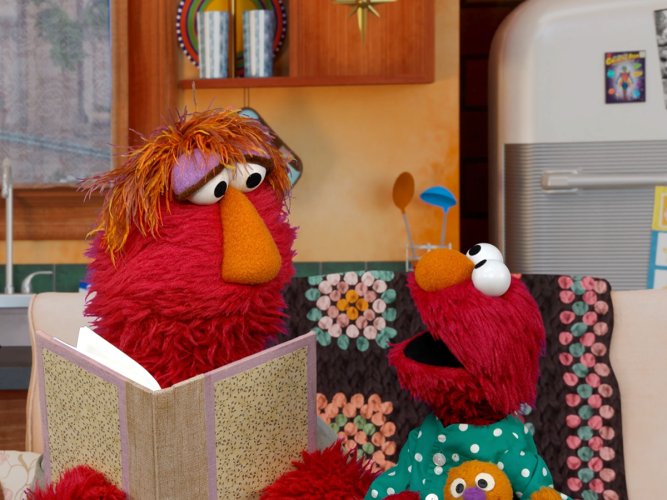
Go To Sleep, Elmo!
Handling a middle-of-the-night monster moment.
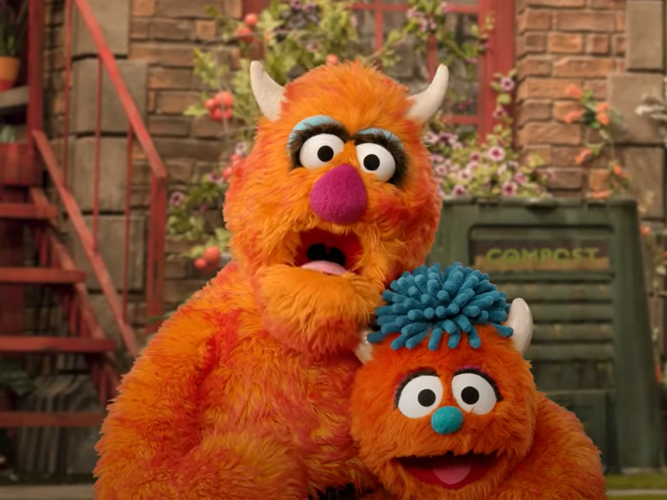
Monster Meltdown
Meltdowns happen… but they are somewhat predictable! As you try to handle them, curiosity and patience go a long way.
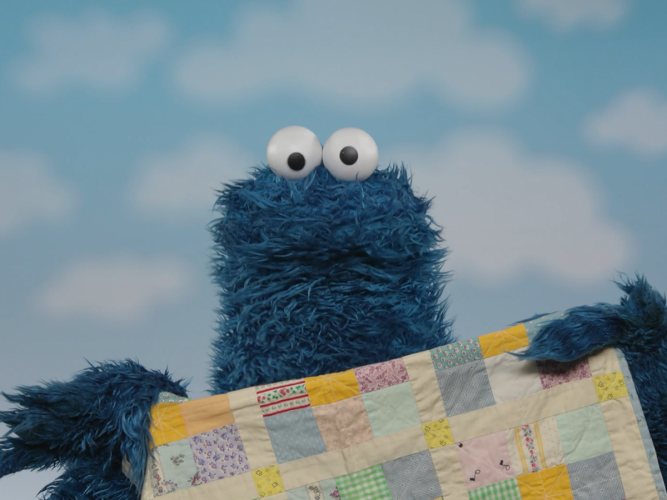
Cookie Monster’s Beach Day
When children are in the hospital, their imagination can become a valuable tool in soothing themselves.
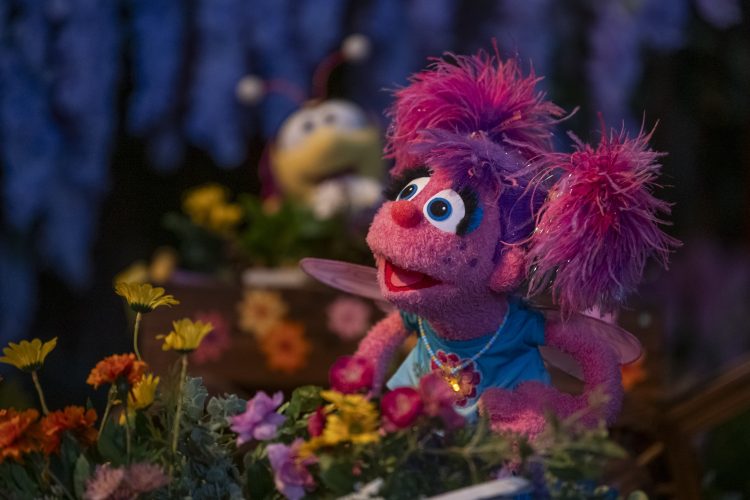
Watch and Play: Abby's Magical Beasties
Watch this episode and explore ways to extend the learning at home.
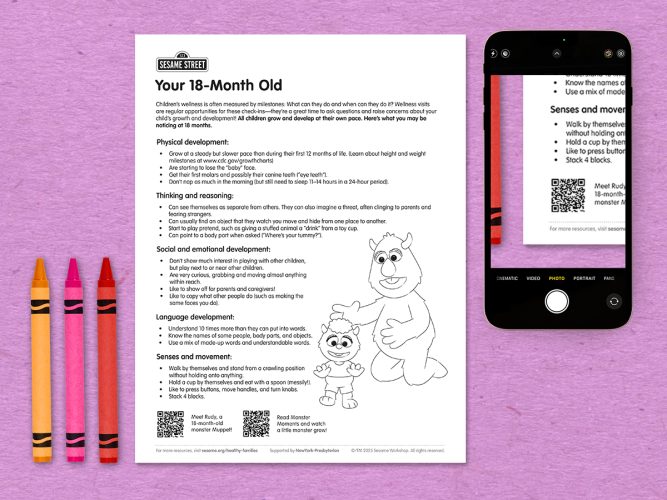
Milestones: Your 18-Month Old
All children grow and develop at their own pace; use this chart to guide your expectations and observations so you can talk to your child’s pediatrician about questions or concerns.
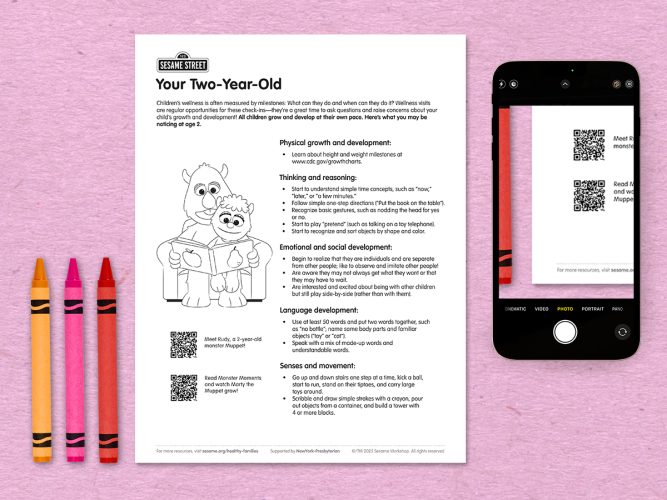
Milestones: Your Two-Year-Old
All children grow and develop at their own pace; use this chart to guide your expectations and observations so you can talk to your child’s pediatrician about questions or concerns.
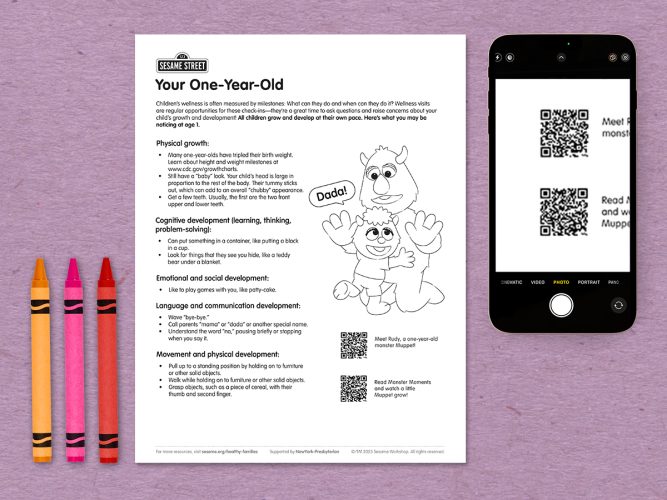
Milestones: Your One-Year-Old
All children grow and develop at their own pace; use this chart to guide your expectations and observations so you can talk to your child’s pediatrician about questions or concerns.
